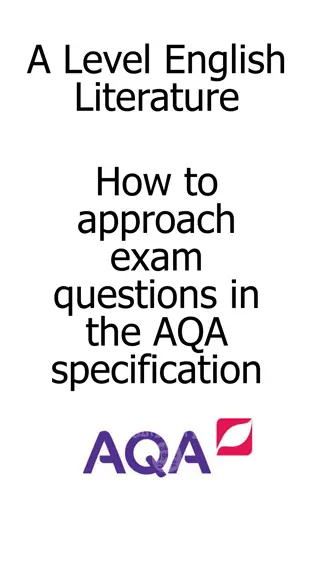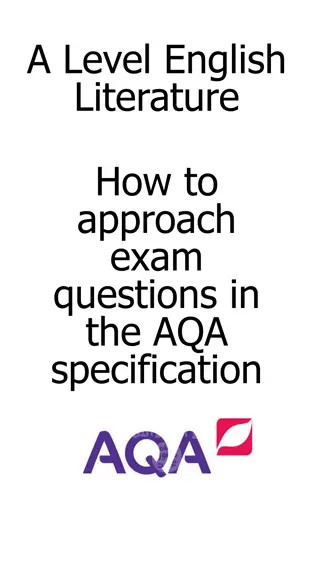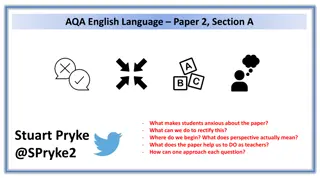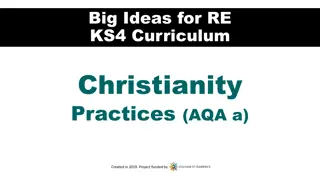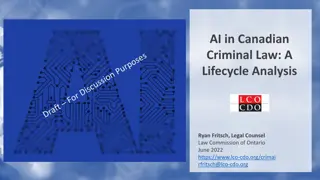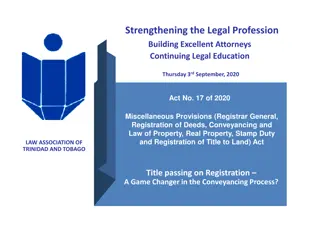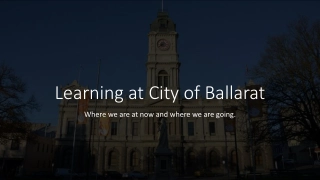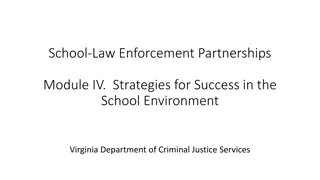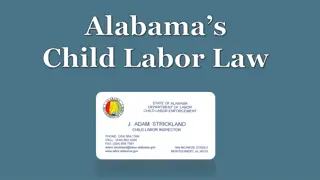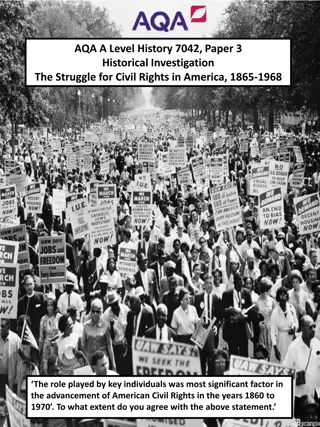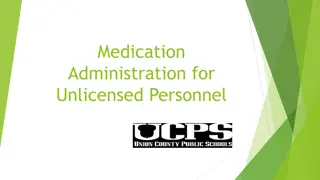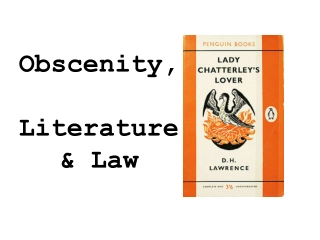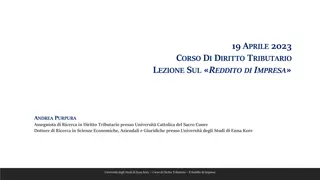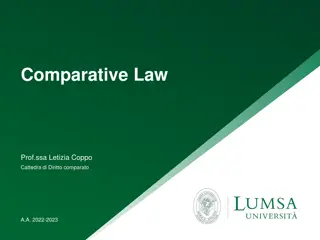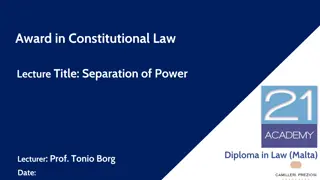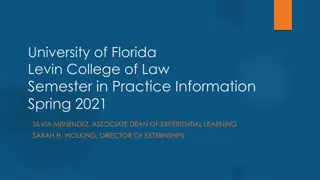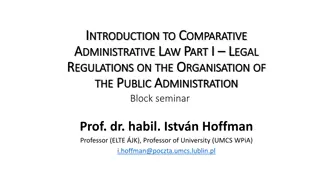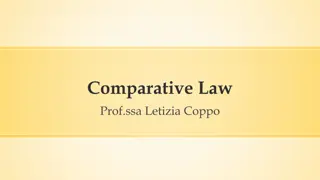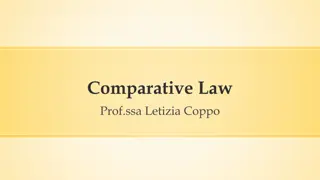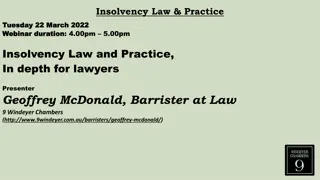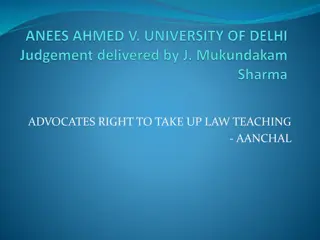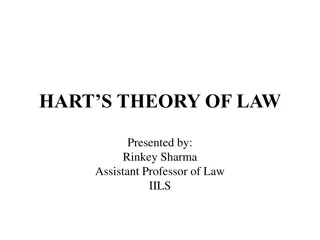AQA Law A Level at City of Norwich School
Explore the comprehensive AQA Law A Level curriculum offered at City of Norwich School, covering topics such as the nature of law, criminal law, tort law, and human rights. Students will delve into the English legal system, learn about various legal principles and rules, study criminal liability and torts, and examine human rights under the European Convention. Engage in activities related to jury service, understand the role of jurors, and discover the advantages and disadvantages of the jury system.
Download Presentation

Please find below an Image/Link to download the presentation.
The content on the website is provided AS IS for your information and personal use only. It may not be sold, licensed, or shared on other websites without obtaining consent from the author. Download presentation by click this link. If you encounter any issues during the download, it is possible that the publisher has removed the file from their server.
E N D
Presentation Transcript
AQA Law A Level at City of AQA Law A Level at City of Norwich School Norwich School Mrs Mrs Ragan Ragan k.ragan@cns k.ragan@cns- -school.org school.org
What will we be learning? What will we be learning? The nature of law and the English legal system Criminal law Tort law Human rights We will be developing a basic understanding of the distinction between enforceable legal rules and principles and other rules and norms of behaviour, as well as the differences between criminal and civil law and between different sources of law including custom, statute law and the common law. Topics covered include: - Law and morality / law and justice / law and society; - Parliamentary law making and judicial precedent; - The civil and criminal courts. We will be studying the rules and principles concerning general elements of criminal liability and liability for offences against the person, property offences and attempt, including the specific offences of: - Involuntary manslaughter; - Murder and voluntary manslaughter; - Theft and robbery; - Attempts; - Defences. We will be studying the rules and principles concerning liability and fault in actions for negligence, occupiers' liability, nuisance and vicarious liability, and associated defences and remedies, including the specific torts of: - Medical negligence; - Nuisance; - Occupiers liability; - Pure economic loss; - Negligent misstatement; - Vicarious liability; - Remedies. We will take an in depth look at the rules and principles of law relating to the right to life, to liberty and security of person, to privacy, to freedom of expression, and to freedom of assembly and association, as recognised by the European Convention on Human Rights and in the United Kingdom. We will consider the restrictions to these rights and how they are enforced in the UK, in addition to considering any conflicts between these human rights and our domestic law.
Bridging task Bridging task - - need need to do to do Jury service Visit the following websites and watch the video about the role of a juror to find out more about jury service in England and then complete the activities on the following slides: https://www.gov.uk/jury-service information from the Ministry of Justice about jury service https://www.lawteacher.net/free-law-essays/criminal-law/the-jury- system.php - the role and importance of the jury https://www.youtube.com/watch?v=yQGekF-72xQ&t=2s video about your role as a juror
Need Need to do to do - - Questions on juries Questions on juries 1. Which types of cases are juries used in? 2. Why are juries used to decide cases? 3. Why is the independence of the jury important? 4. Who is eligible to sit as a juror? 5. Who cannot sit as a juror? 6. Who can defer jury service? 7. Who can be excused from jury service? 8. How can the defence or prosecution challenge the use of a juror or jurors on a case? 9. How many jurors sit on a case?
Need Need to do to do - - Advantages and disadvantages of Advantages and disadvantages of using jurors to decide criminal trials using jurors to decide criminal trials Using the research you have done, fill in the the table below, setting out the advantages and disadvantages of using jurors to decide criminal trials: Advantages Disadvantages
Summer task Summer task - - Nice Nice to do to do Lay magistrates Use the websites below to help you consider the following questions about lay magistrates: What is the role of a lay magistrate? Which court do lay magistrates sit in and what kind of cases do they work on? Who can be a lay magistrate? Which personal qualities should a magistrate have? What are the main differences between lay magistrates and jurors? https://www.gov.uk/become-magistrate https://www.lawteacher.net/free-law-essays/common-law/the-term-lay-people.php
Additional resources Additional resources www.lawteacher.net; www.e-lawresources.co.uk; www.legalcheek.com; www.alevellaw.doomby.com www.studyrocket.co.uk www.ials.sas.ac.uk www.lawsociety.org.uk
Further course information Further course information We will be studying the AQA 2 year A Level course the specification can be found at this link: https://www.aqa.org.uk/subjects/law/as- and-a-level/law-7162/specification-at-a-glance Course textbooks:



